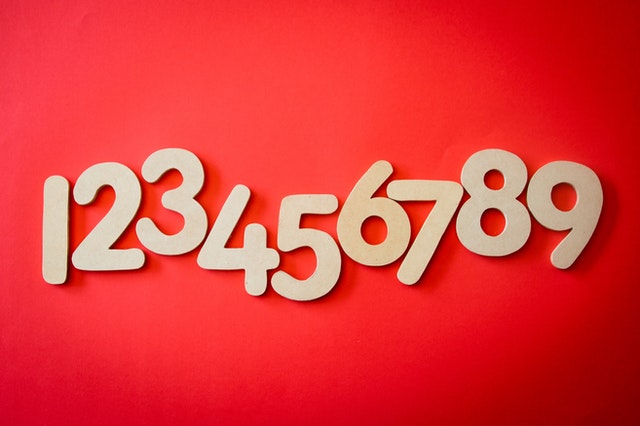Could Mouthwash be used as A Substitute to Brushing?
Could Mouthwash be used as A Substitute for Brushing? It’s a weekend. You’ve enjoyed a delicious dinner with your family and friends. You’re home, exhausted, and ready to go to the mattress. You’ve heard the routine You must clean your teeth before going to bed. Are you considering making use of toothpaste instead?
Many people who are like you see mouthwash as an alternative to brushing. Does mouthwash have the ability to substitute for brushing?
Mouthwash can be described as a perfume to treat bad breath. The antibacterial components in mouthwash make your breath fresher and stop the growth of bacteria in your mouth. It not only can help fight bad breath but also, rinsing with mouthwash will help to avoid gum disease and cavities. The presence of fluoride in mouthwash can help in the prevention of tooth decay as well.
In light of the above, it isn’t an alternative to flossing or brushing. A mouthwash rinse will not remove food particles that are stuck in the teeth as well as take away the plaque that is sticky. However, you can certainly include it in a regular routine of oral hygiene, along with flossing and brushing.
To comprehend why mouthwash isn’t an alternative to brushing, first know the most commonly used components found in mouthwash.
Mouthwash Ingredients
These are the most commonly used ingredients found in mouthwashes. However, not all mouthwashes contain all of these ingredients. You must be aware of the ingredients to determine which one will best suit your needs
- fluoride helps in the prevention of cavities as well as the decrease of decay in the teeth.
- AntimicrobialsThey removes the bacteria which cause bad breath, plaque, and gingivitis.
- Salt with astringent characteristics: It’s a type of deodorizer that is able to disguise unpleasant breath, for a brief time.
- neutralizers to combat odors: They can target the source of bad breath.
- Other bleaching substances and peroxide: They can aid in the removal of stains on your teeth.
Here are a few reasons we believe that mouthwash should not be used in lieu of brushing
Good bacteria are likely to be killed as well.
Brushing your teeth with mouthwash instead in the morning can seem like a simple solution, especially if are in a rush. It’s fine to change every now and then however, don’t become a routine. Antibacterial properties are present in the majority of mouthwash formulas, and they’re designed to kill bacteria that contribute to plaque build-up and bad breath. Utilizing it every day can kill every single bacteria present inside your mouth, even the healthy ones.
The mouths of our patients are home to lots of bacteria, many of which are useful (including the ability to keep bad bacteria in check). If you wash your mouth using mouthwash you eliminate the harmful bacteria, but you also remove beneficial bacteria that can help your body function properly.
If the mouthwash you use is a source of alcohol using it more often than suggested can result in all of the alcohol getting into your mouth, causing disruption to saliva production, and resulting in a dry mouth. A mouth that is dry attracts more bacteria and causes bad breath, which can hinder your efforts to maintain good oral hygiene.
Mouthwashes can mask issues
Bad breath can be an indication that something is wrong with your mouth. If you don’t clean your teeth or floss according to your dentist’s recommendations plaque and bacteria build up and cause smelly breath (along with other issues). While a brief spritz of mouthwash can refresh your breath of yours, it will do nothing to address dental health issues.
A persistently unpleasant breath can be an indication that something’s not completely right. Periodontal diseases, gastroesophageal reflux disease (GERD), and sinus infections, as well as other problems, are all causes of bad breath. If you don’t treat periodontal problems the chances are higher to suffer from a heart attack, stroke disease, and most importantly tooth loss.
The act of brushing your teeth using mouthwash, or using only mouthwash instead of brushing can mask the problem, giving it the chance to get worse. Set up an appointment with a Dr. Michaelis dental professional immediately feasible if you’ve been experiencing persistent bad breath.
Mouthwashes are not able to fight plaque
Plaque accumulates in your gums and around the gum line as bacteria break down food particles. The filmy substance can lead to bad breath. It may also trigger gum disease and tooth decay when it is accumulated over a long time. A good oral care routine involves the removal of plaque before it creates an imbalance in the oral microbiome and causes tooth decay.
Plaque can be sticky, and therefore brushing, cleaning, and using mouthwash regularly is the best way to remove it. The use of mouthwash can remove some plaque, but not the entire amount. Brushing can remove plaque between your teeth and help protect against tooth decay and bad breath along with other health problems.
How can you effectively use mouthwash?
- Make sure you use only the amount recommended for mouthwash as stated on the label, or as instructed by Dr.Michaelis
- Swirl the mouthwash between 30 and one minute, or the time indicated on the product’s label keeping your mouth shut.
- Do not drink mouthwash because it has harmful ingredients. Keep them away from youngsters and supervise them whenever they use them.
- To prevent rinsing off fluoride or other beneficial substances, you should wait between 20 and 30 minutes after washing your mouth prior to drinking or taking a meal, drinking alcohol, or smoking.
Dental hygiene is a vital component of your daily routine. Mouthwash is used prior to or following brushing. The flossing and brushing process helps remove plaque, so mouthwash could serve as an extra-oral aid. Make sure to not overuse it and don’t make use of mouthwash in lieu of brushing your teeth. Making the right long-term choices can help maintain your dental health for a longer time. Utilizing mouthwash in place of flossing and brushing your teeth might seem like an easier option however it can cause greater harm than good.



